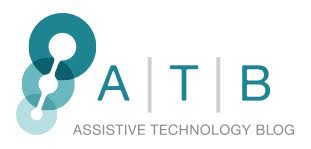VocaliD: Donating Your Voice To People With Speech Impairment
We never give too much attention to our voice – it is one of the things we take for granted. However, there are millions of people around the world who were either born with a speech impairment or lost their voice because of a stroke, or some serious disease like Parkinson’s or Cerebral Palsy. Learning new ways to communicate either using sign language or any other accessible device with limited/generic synthetic voices may not be a weapon of choice for many, especially the ones who lose their perfect voice later in their lives because of a disease.
That is where VocaliD comes into the picture. VocaliD is a company that is trying to bridge all sorts of gaps and helping people with speech impairments communicate using natural voices.
But what does that exactly mean?
VocaliD consists of a team led by Dr. Patel who listens to the limited sounds of patients with speech impairments. These sounds help the team understand what this person’s voice may sound like if it were high pitched, raspy, etc. Once they have the patient’s sounds, they look for a surrogate – a person of the same age and sex who has no speech impairment. This surrogate is made to record thousands of sample sentences (from books like White Fang, The Wonderful Wizard of Oz, and The Velveteen Rabbit). The two voices of the patient and surrogate are then blended and broken down into tiny units of sound that can then be used to construct words! The hybrid of the two voices makes the final voice very natural and personalized, and not so synthetic.
(To read more technical details on how this is done, go here.)
This is a big improvement in communication because the listener gets more information from how a person speaks than just the content of what they say.
Currently, the process requires that the surrogate come to a studio to record their voice but VocaliD plans to release a phone or web app so that anyone could record their voice from locations most convenient to them (their home, for example). This makes more sense because recording thousands of sentences takes many hours, and surrogates who volunteer to donate their voices would ideally like to do it in 15 – 20 minute sessions over a period of days. The team is also planning on creating a game to encourage children to record their voices.
VocaliD is looking for volunteers from around the world to donate their voices, and if you are interested, head to their website to sign up.
If you are interested in receiving a personalized voice, you can sign up for that here.
Website: vocalid.org
Source: NewScientist


I heard about your program on NPR. As an early childhood special education teacher, I would be thrilled to donate. However, when I go on the link it is only written in Chinese.
I have donated over 4 hours and am happy about that but, I am wondering if there is any notification when you have enough material (my voice recordings), will I be notified somehow?